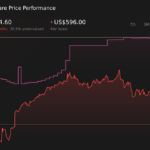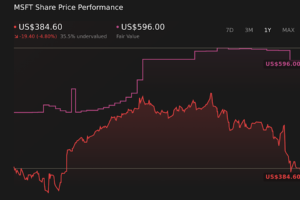
The coronavirus quarter is here.
Earnings season kicked off this week with big banks including JPMorgan reporting their results from a first quarter wrought with uncertainty and slowdowns in consumer activity.
The most recent quarter will likely be a pivotal one when it comes to gauging how long the pandemic’s impact on the economy will last, market commentators agree.
Here’s what four of them, including CNBC’s Jim Cramer, were watching Tuesday:
Cramer, host of “Mad Money,” said earnings reports could lead investors back to stock picking:
“I think that, like many people, we really don’t know what the future is and it’s amazing that anyone kind of gives you a forecast. One of the reasons why we love J&J so much is they basically did give you a forecast. They laid things out. They’re spending a quarter-billion on this vaccine. Their midpoint was lowered by about 9%, but frankly, that’s exactly what the elective surgery would do. … They have nine drugs that are growing at a double-digit pace, and then I think that people are looking at dividend yields. And they gave you a 6% increase in the dividend at a time when I think a lot of people were saying, ‘Wait a second, I don’t know if my dividend is safe.’ So, J&J … is making a good case that you should own individual stocks again. Don’t own the S&P. You get too much nonsense with the S&P. I’m looking for the old defenders of ‘just do nothing but index investing’ because it’s not paying off anymore. It’s just not.”
Sarat Sethi, portfolio manager and equity analyst at Douglas C. Lane & Associates, said there would be a notable shift in how analysts approached reports this quarter:
“What we heard about a month ago was that a lot of corporations were drawing down the credit lines. Then you add to that all the bond issuance. … I think when the Fed came in last week, that was a very positive thing. Companies were able to go to the bond market, especially those that we’ll see going forward … will have a really hard time hitting their revenue numbers, and I think that’s where the balance sheets are going to be really important and companies like JPMorgan [and] Bank of America are going to be providing that liquidity, that credit, the ability for companies to survive over the next couple quarters. And that, I think, is a very good indication for the capital markets, it’s a good indication for corporations, because what you’re going to look for then is when companies do announce their earnings, what are they doing with that cash? Are they using it for working capital? Are they using it for payroll? R&D? I think those are the things that we’re going to be looking for, especially as you try and project out over the next couple quarters. And then, really, going forward, what is the business going to look like for a lot of these companies? … I mean, you don’t just have what’s going on in the U.S., what’s going on globally, what’s going on with currency, what’s going on with their consumers and their customers. And I think this is the first time that when companies talk about earnings, we’re going to be looking at revenue guidance, and that’s going to be a big change from the past.”
Aperture Investors Chairman and CEO Peter Kraus said it would be harder to gauge the outbreak’s impact than some might think:
“It portrays the difficulty that financial institutions are going to have in trying to estimate what the credit impact is on their books, both commercial impact, meaning for commercial lending, as well as residential lending through this recession. And I don’t think we really have enough information right now. You know, you’re a month-plus into this shutdown. We’ve seen delays in interest payments for a month. We really haven’t seen more than that. Job losses are, really, three weeks old. So, it’s very hard to actually estimate what your losses are in this time period.”
Marty Mosby, director of bank and equity strategies at Vining Sparks, forecast stability for stocks like JPMorgan’s going forward:
“We have to change our perspectives. It used to be returns and revenue growth. All that’s basically where it was when we left it off. We now are focused completely on credit and how much capital do we have to be able to pay for the credit costs? If you look at the earnings that JPMorgan just released at 78 cents, that compares what they’re paying in dividends of 90 cents, so, they basically earned their dividend, which is the first threshold. If we looked at their total credit costs for the year where they could be able to do that, they have a cushion of about $30 billion. They put $8 billion away this quarter, so, they’re pretty much in line with what we would expect to be able to defend what you’re looking at in the dividend. And … their tangible book value is relatively flat. So, in the quadrants that we’re looking at [such as] liquidity, deposits are strong, up 23%, so we’re not seeing liquidity crunch on the banks, capital is defendable, and that leads into pretty stable dividends and tangible book value so far.”








